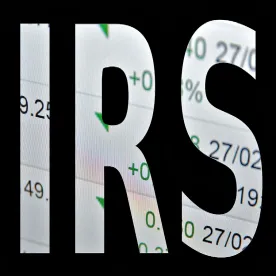On October 21st, the IRS announced changes to its qualified plan determination letter program. Most notably, the program has been expanded to include section 403(b) tax-sheltered annuity plans (“403(b) plans”). Although 403(b) plans are similar to tax-qualified defined contribution plans (“401(a) plans”), they are subject to unique rules, and, until now, the IRS has not offered a determination letter program for individually designed 403(b) plans. While not the focus of this blog post, the IRS also harmonized and extended certain “remedial amendment periods” across individually designed 401(a) and 403(b) plans and updated and restructured certain related definitions.
Why Get a Determination Letter?
Like 401(a) plans, 403(b) plans must satisfy detailed requirements in both form and operation. A failure to comply with either the form requirements or the operational requirements would result in loss of favorable tax treatment—which means that tax-deferred account balances under the 403(b) plan would be subject to immediate income tax, as well as interest and potential penalties. The determination letter program provides important protection against this untenable result. Under the program, the IRS reviews the plan document and decides whether the form requirements are satisfied. (The IRS does not review operations under the program.) If the determination is favorable, the IRS is generally precluded from subsequently disqualifying the plan based on a form violation or for administering the plan in accordance with the terms of the approved document.
Given the myriad technical requirements for a plan document, the benefit of an IRS determination cannot be understated. Word of caution, though: the IRS reserves the right to impose sanctions (penalties) if it discovers a violation during the determination process. Plan sponsors should review the plan documents carefully before requesting the determination; errors that are identified before submission can be corrected under the IRS’s Voluntary Correction Program.
Details of the Determination Letter Program Expansion to 403(b) Plans (Rev. Proc. 2022-40)
As noted above, the IRS has expanded the determination letter program to include 403(b) plans. To protect against the IRS being overwhelmed, the window to request a determination is limited:
-
Plan sponsors can apply only for an initial determination, a determination following a plan merger, or a determination upon the termination of a 403(b) plan.
-
Generally, an initial determination is permitted only for plans that have not received a determination as an individually designed plan, and sponsors may apply on a rolling basis based on their employer identification number (“EIN”). For plans sponsored by employers with EINs that end in 1, 2, or 3, applications may be submitted on or after June 1, 2023; for plans sponsored by employers with EINs that end in 4, 5, or 6, applications may be submitted on or after June 1, 2024; and for plans sponsored by employers with EINs that end in 7, 8, 9, or 0, applications may be submitted on or after June 1, 2025. The Revenue Procedure does specify a deadline for applying.
-
Plan sponsors may also seek a determination letter following a plan merger. As with 401(a) plans, the plan merger would need to occur by the end of the first plan year after the applicable corporate merger, acquisition, or other similar business transaction, and the determination letter application must be filed by the end of the first plan year that starts after the plan merger.
Rev. Proc. 2022-40 also includes caveats regarding limitations on the scope of IRS review and the purposes for which a plan sponsor may rely on the determination letter, which are similar to those that apply to 401(a) plans. The guidance also says that the IRS will not express an opinion on any issues arising from a plan’s coverage of employees outside the sponsor’s controlled group (i.e., the determination will not cover issues related to being a multiple employer plan). As with other determination letter applications, plan sponsors will need to furnish notices to interested parties during the 10-24 day period before a determination request is filed.
In announcing Rev. Proc. 2022-40, the IRS also said to expect more changes to the general determination letter program procedures in 2023.
Proskauer Prospective
This announcement is a significant and welcome development for 403(b) plan sponsors. Given the myriad technical form requirements for a plan, there is always a risk that an IRS audit might reveal a latent, but disqualifying, error in the plan document. The determination letter program offers important protection against that risk.
In addition to the protection against audit risk, the market may begin to expect that a 403(b) plan has a favorable determination letter. While determination letters are not technically required, auditors, investment managers, and transaction partners often request favorable determination letters as part of their diligence process. Not having one could put the sponsor in the difficult position of having to make representations about compliance without the benefit of assurance from the IRS.





 />i
/>i
